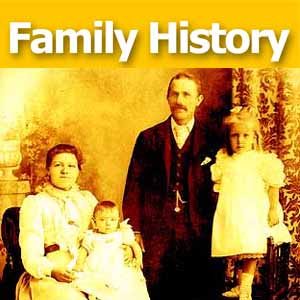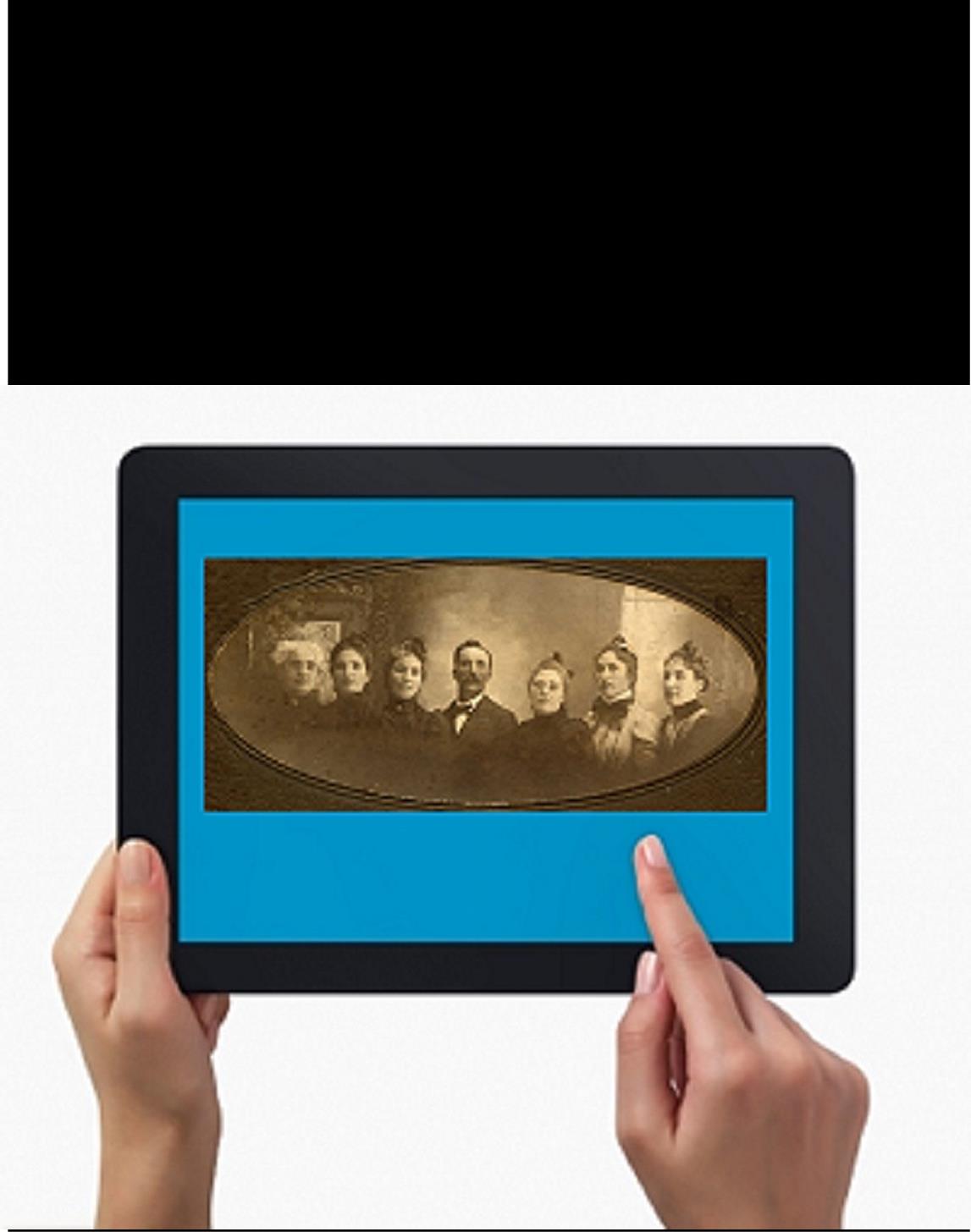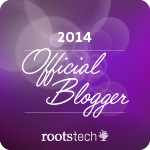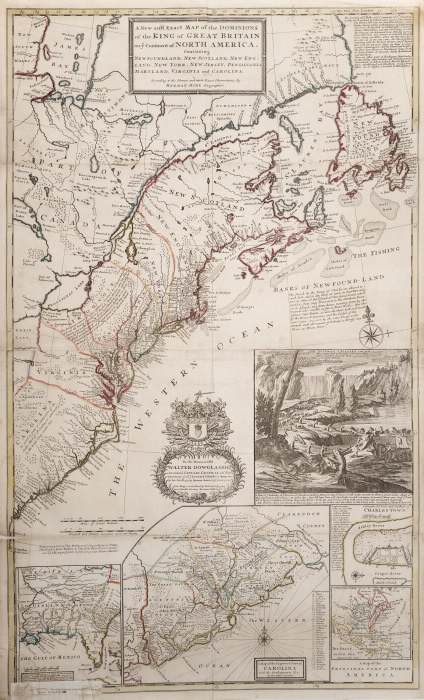by Lisa Cooke | Dec 10, 2013 | 01 What's New, Ancestry, Census, Family History Podcast, FamilySearch
 Originally published 2009
Originally published 2009
Republished December 10, 2013
Welcome to this step-by-step series for beginning genealogists—and more experienced ones who want to brush up or learn something new. I first ran this series in 2008-09. So many people have asked about it, I’m bringing it back in weekly segments.
[display_podcast]
Download the Show Notes for this Episode
Episode 10: Deeper into Census Records
We’re going to start off today by continuing our use of U.S. Federal Census Records. Last episode we located relatives in the 1930 census, and today we’re going to push further back in time to follow the census bread crumb trail.
Then in our second segment we’re going to explore some census enumerations that often go overlooked by family historians with Curt Witcher, the Manager of the nationally-recognized Genealogy Center at the Allen County Public Library in Fort Wayne, Indiana. Curt is a very well-known genealogy lecturer and he has some great tips for tapping in to more obscure census resources. We’ll talk about nonpopulation schedules for the federal census, census substitutes for missing census data (like the 1890 census) and state censuses that may be available, too.
Updates and Links
As I mentioned in the show notes of the last episode, the 1940 census is now available to researchers. Check out those notes for more information. Here are some more updates and links:
- Learn more about nonpopulation schedules and other census records in Ancestry’s online version of The Source.
- The U.S. Census Bureau has online info on state censuses. Learn even more in Ann S. Lainhart’s book State Census Records (Genealogical Publishing Company, 1992). A lot of state censuses are now searchable on Ancestry.com and FamilySearch.org.
- A few fragments of the 1890 census remain. These are searchable at Ancestry.com and FamilySearch.
- The Ancestry database substitute for the 1890 census I mentioned in the show is now supplemented by census substitute databases on Ancestry for just about every state for 1890 and other years. Search for them in the Card Catalog with the search term “1890 census.”
- The National Archives has a portal for census records, too (what’s in them and how to find them).
by Lisa Cooke | Dec 9, 2013 | 01 What's New, Apps, Conferences, FamilySearch, Flipboard, Mobile, Publishing, RootsTech


Originally designed specifically for the iPad in 2010, the free Flipboard app has moved onto all the major mobile platforms. And this cool new technology has just gotten better with a big dose of genealogy!
I invite you to explore the newly released free Flipboard magazine RootsTech 2014: Where Genealogy and Technology Converge. (Image right: cover)
Genealogy Gems has published the magazine in conjunction with the RootsTech program team in a continuing effort to help family historians embrace new technologies and present RootsTech attendees with the possibilities.
Consider what’s been happening in the mobile space this last year:
- Smartphone usage in the U.S. increased by 50 percent (Kleiner Perkins)
- The number of emails being opened on mobile increased by 330 percent (Litmus)
- Tablet usage doubled in the U.S. (Pew Research Center)
The bottom line: More than ever folks are accessing websites, videos, podcasts, blogs and other online information on their mobile devices. That’s where the free Flipboard app comes in.
The free Flipboard app is a social-network and online aggregator of web content and RSS channels for Android, Blackberry 10, iOS, Windows 8, and Windows Phone 8. Content is presented in a captivating magazine format allowing users to “flip” through it with a simple swipe of the finger.
As a genealogy new media content creator and publisher, we’re excited to introduce a creative use of this emerging technology to the genealogy industry. RootsTech 2014: Where Genealogy and Technology Converge is a free magazine available at http://tinyurl.com/RootsTech2014. The magazine pulls together great web content from RootsTech speakers, exhibitors, and official bloggers in one beautiful and convenient place.
This magazine has presented an opportunity to crowd-source the know-how and talent of all of those who work to make RootsTech a success. The magazine offers an exciting look at the RootsTech experience the innovative technologies emerging in the genealogy industry, and a new vehicle for everyone in the RootsTech community to converge! The pages go beyond text and images by also delivering video and audio!
How to Access the Magazine in Flipboard:
- Get the free Flipboard app at flipboard.com, in iTunes or Google Play.
- Set up for your free account
- In the search box at the top of the homepage, search for ROOTSTECH
- Tap “RootsTech 2014” by Lisa Louise Cooke (you’ll see a magazine icon next to it.)
- When the magazine loads, tap the SUBSCRIBE icon at the top of the page
- Starting at the right hand side of the page, swipe your finger from right to left over each page to “flip!”
Looking for more great genealogy themed Flipboard magazines? Check out two more new issues from Lisa Louise Cooke:
Stay tuned to the Genealogy Gems Blog and Podcast for Lisa’s upcoming exclusive interview with the folks at Flipboard!
by Lisa Cooke | Dec 6, 2013 | 01 What's New, FamilySearch, RootsTech
The all-star lineup of keynote speakers has been announced for RootsTech 2014. They will inspire everyone to discover and share the stories that connect our families-past, present, and future.
Ree Drummond, blogger and author, The Pioneer Woman
Ree is an award-winning blogger and New York Times bestselling author. Her popular website, The Pioneer Woman, was founded in 2006 and showcases her cooking, photography, and stories about country life.
Annelies van den Belt, CEO, DC Thompson Family History – Annelies is changing the way digital genealogical records are published and organized. Her company hosts 1.8 billion genealogical records across a family of online brands.
Judy Russell, blogger and professional genealogist, The Legal Genealogist – Judy is a certified genealogist with a law degree who enjoys helping others understand the interplay between genealogy and the law. She blogs and maintains The Legal Genealogist website.
Dr. Spencer Wells, project director, National Geographic Genographic Project – The indiana Jones of genetics, Dr. Wells has traveled the world and captured the DNA of more than a half-million people to tell the story of the human journey.
Todd Hansen, TV host, The Story Trek – Behind every door there is a story. This TV series consists of random door-to-door interviews to discover who lives behind those doors and their real stories.
Stephanie Nielsen, blogger and author, NieNie Dialogues – Stephanie’s story of survival and recovery after a plane crash captured the hearts of the nation. She has inspired others through interviews with Oprah Winfrey and on the Today Show.
 The fourth annual RootsTech conference, hosted by FamilySearch, will be held February 6-8, 2014 at the Salt Palace in Salt Lake City, Utah. In addition to renowned keynote speakers, the conference features over 200 classes, hundreds of booths in a huge Expo Hall, and evening events.
The fourth annual RootsTech conference, hosted by FamilySearch, will be held February 6-8, 2014 at the Salt Palace in Salt Lake City, Utah. In addition to renowned keynote speakers, the conference features over 200 classes, hundreds of booths in a huge Expo Hall, and evening events.
by Lisa Cooke | Dec 6, 2013 | 01 What's New, British, Canadian, Records & databases
If you’ve got British colonial roots in North America, you know how tough it can be to learn more about your family during that time. That’s why I was excited to read a

The Beaver Map, 1715. By Special Collections Toronto Public Library. Flickr, via Wikimedia Commons.
recent article in the Harvard Gazette.
According to the article, plans are afoot to digitize and make available millions of British colonial documents. Yep, you read that right. Millions. There are still that many colonial-era documents sitting largely untouched in public and private archives, far from the reach of the everyday genealogist.
The Gazette reports not one but two major digitizing projects underway relating to British colonial documents in the U.S. Harvard University is leading the first project, which is already funded and underway. It will capture around 30 million pages of 17th- and 18th-century material from more than 1600 manuscript collections at 12 different Harvard repositories.
As if that’s not good enough news, a much larger project is in the works, too. A larger-scale Colonial Archives of North America has plans to digitally assemble pre-Revolutionary War material from Harvard and several historical societies, archives and Libraries in New England, New York and beyond (including Montreal). I was pleased to see that records relating to businesses, poverty, public health and indigent care will form part of the anticipated collection. These kinds of documents talk about everyday folks and their living conditions. Just what we want for our colonial genealogy. This second project is not funded yet but researchers are confident it will be.
Meanwhile, check out online resources like these for colonial documents:
by Lisa Cooke | Dec 5, 2013 | 01 What's New, DNA, History
 Here’s a cool website about ancient civilizations. It’s TheAncientWeb.com, and it looks like a fun and easy way to get up to speed on history.
Here’s a cool website about ancient civilizations. It’s TheAncientWeb.com, and it looks like a fun and easy way to get up to speed on history.
As the title hints, this site is all about deep roots. It covers ancient societies in all parts of the world: North and South America, Europe, the Near East, Africa, Asia and Oceania. You’ll find history and images of artifacts on peoples ranging from Arabians to Vikings!
This is a great interactive tool for brushing up on ancient history. Check it out with your kids or grandkids who are exploring these topics in school or because they’re reading books like the Percy Jackson & the Olympians Series
(based on Greek and Roman mythology).
But this is also a helpful resource if you’re looking to learn more about your “deep ancestry” as identified by DNA tests. You may never know if you descend from a famous (or infamous) warlord, ruler or explorer. But genetic tests are becoming more specific about deep geographic roots. So maybe it’s worth checking out a little Viking warrior fashion or learn about the ancient empire of the Mandingo on this site!










